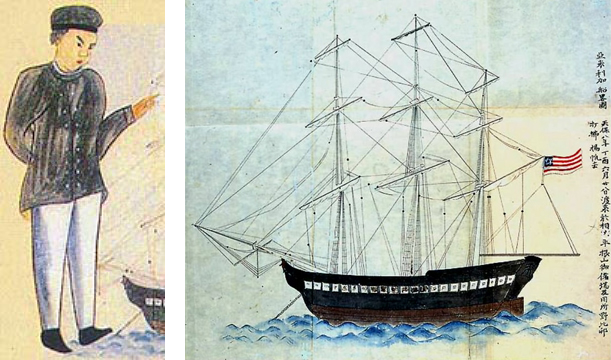The Course to Fortune: A Tale of Reinvention in the 1800s
In a world shaped by struggle and survival, one individual's extraordinary journey defied all expectations. This is a story proving even the most humble beginnings can lead to a fortune beyond imagination.
2/27/20252 min read


Yamamoto Otokichi was just fourteen years old when he embarked on a journey that would alter the course of his life forever. In December of 1832, what was meant to be a routine freight transport from Port Toba to Edo (now Tokyo) turned into a harrowing fight for survival. A typhoon swept the cargo ship Hojunmaru and its fourteen crew members into the vast expanse of the Pacific Ocean, setting them adrift on an odyssey of endurance and transformation.
For fourteen months, the castaways battled starvation, scurvy, and despair as they drifted over 4,660 miles to Cape Alava in what is now Washington state. Upon reaching land, they faced a new set of challenges—enslavement by the Makah tribe, an inability to communicate with their captors, and eventual transfer into the custody of the Hudson Bay Company. But for Otokichi, adversity became a catalyst for growth.
Like Odysseus longing for Ithaca, Otokichi yearned to return home, yet there were other ventures in store for him. Under the Hudson Bay Company, he began learning English and was introduced to Christianity. The company sent him on a brief visit to England and later to Macau, where he collaborated with Reverend Karl Gutzlaff to produce the first Japanese translations of portions of the Protestant Bible. He deepened his mastery of English, converted to Christianity, and adopted the name John Matthew Ottoson.
Five years after his departure from Japan’s shores, Otokichi finally had a chance to return. In 1837, he boarded a ship bound for Edo Bay, his heart set on home. But his country did not welcome him back. Japanese officials, fearing his exposure to Western culture had tainted his identity, fired cannons to drive the ship away. Rejected by the land of his birth, Otokichi shaved his head—a symbolic act of severing ties with his homeland.
Undeterred, he channeled his disappointment into opportunity. Over the next twenty years, Otokichi became a highly sought-after interpreter and diplomat, facilitating trade relations between Japan, Britain, and the United States. His skill and adaptability enabled him to amass wealth, purchase land in Singapore, and retire as a respected and accomplished man.
A Legacy of Resourcefulness and Resilience
Otokichi’s story is not just one of survival, but of relentless reinvention. Born into the lowest social caste with little access to formal education, he forged his own path, mastering multiple languages, cultivating international business relationships, and shaping a successful career from nothing.
Where others might have surrendered to misfortune, Otokichi transformed obstacles into stepping stones. His story challenges us to reconsider our own potential, urging us to rise above circumstances rather than retreat behind them. In a world where many succumb to victimhood, Otokichi’s life stands as a testament to the power of agency, resilience, and adaptability.
More Reasons to Admire Otokichi:
When Japan’s Shogunate offered him re-entry in 1854, he declined, choosing instead to continue the life he had built for himself abroad.
His diplomatic work contributed to the Treaty of Kanagawa, which opened Japan to trade with the U.S.
He learned Chinese while working in Shanghai and adopted the name Lin Ah Tao, once again demonstrating his remarkable ability to adapt to new environments.
Otokichi's first chosen name "Ottoson" might be a play on words for the Japanese "o-TO-san," which means "father."
Otokichi’s journey teaches us that success does not always come in the form we expect. Instead, it belongs to those who embrace change, seize opportunities, and refuse to be defined by their hardships. His life is an enduring reminder that no matter where we start, we have the power to shape our own futures.
An 1849 illustration of Yamamoto Otokichi
Empowerment
Transform your mind , and call in your desired outcomes today.
Connect With Me
Sign Up For the Ronin Newsletter
knakagawa@wealthoftheronin.com
+1(661)401-6684
© Copyright 2024. | Wealth of the Ronin | All rights reserved.
